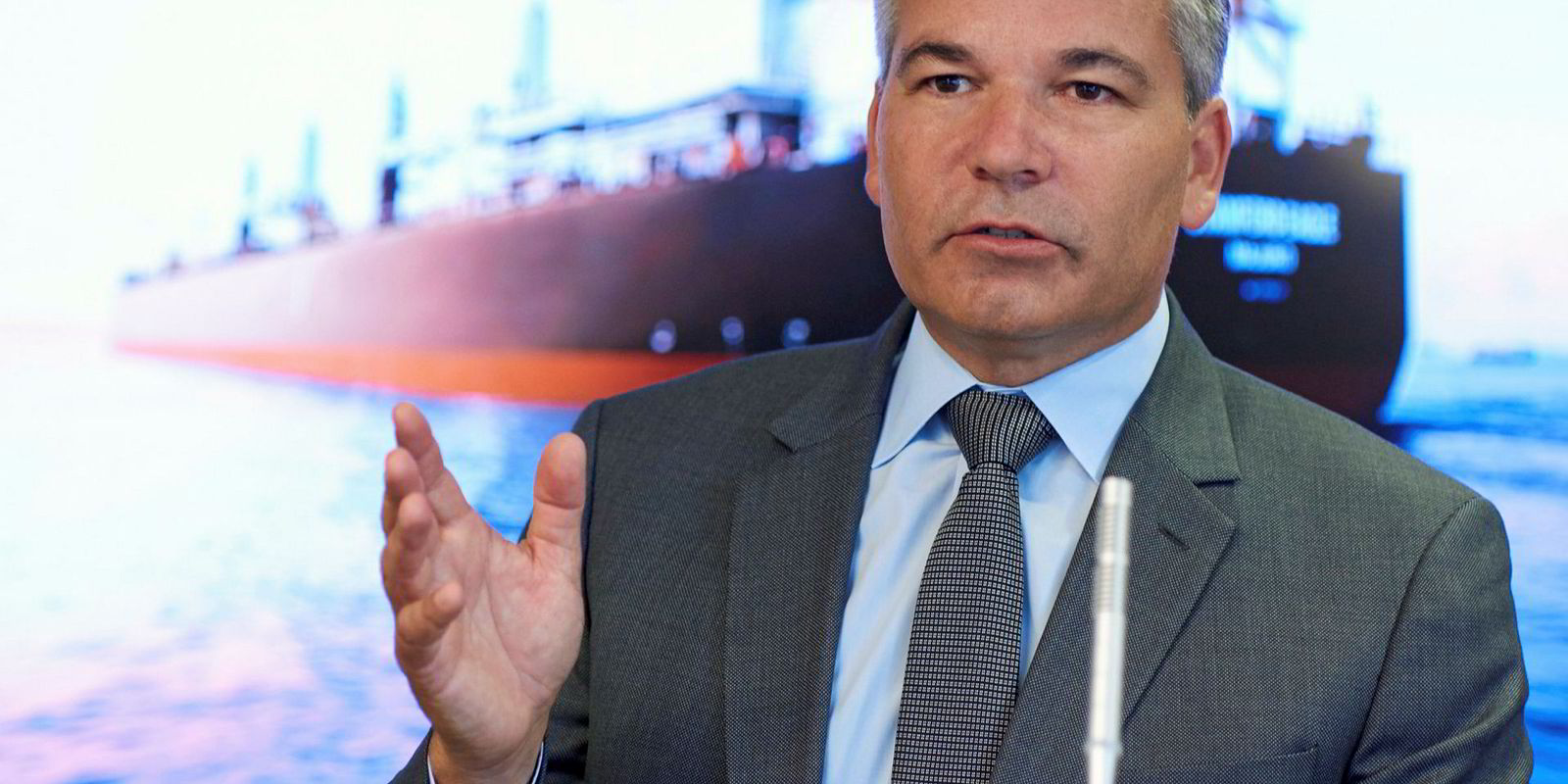Eagle Bulk plans to hold off on signing more contracts of affreightment that go into next year until fuel costs become more clear closer to IMO 2020.
The expected price spread between high-sulphur and low-sulphur fuel oils is just too unpredictable nine months before the seismic switch, chief executive Gary Vogel says.
"At the moment we have no contracts going into 2020 for that very reason but as we get closer we'll be very aware of it," he said today during a fourth-quarter earnings call.
"Given the uncertainty around fuel pricing on a non-scrubber-fitted ship and even on a scrubber-fitted ship, you'd give away your upside on fuel spread by locking in something based on fuel spread today."
Dozens of shipowners plan to fit scrubbers to about 1,500 ships before 1 January to take advantage of a spread between the two bunkers estimated from $180 to $300 per metric tonne.
Vogel said his company has put a number of ships on charters with optional extensions into 2020 but no commitments have been made past 2019 for now.
"In terms of cargo contracting going forward, I think we're very cognisant and cautious about what we would do in terms of fuel costs and ensure there is a fuel adjustment clause or something around it so that we are covered by it," he said.
Scrubbers should be 'considered'
Whatever the spread may be, shipowners should not rule out scrubbers, he said, especially since a Japan test claims no harm to marine life and classification society DNV GL tests shows water results within IMO limits.
"We think the science is extremely supportive and it's on that basis that we went forward as a company as a responsible way to deal with IMO 2020," he said.
"What I'm saying is that scrubbers need to be considered against the alternative, which is burning compliant fuel and not some ideal zero-emission solution, which is unfortunately years away."
Eagle Bulk plans to install scrubbers on 37 of its 46 ships at a cost of about $2m each.




